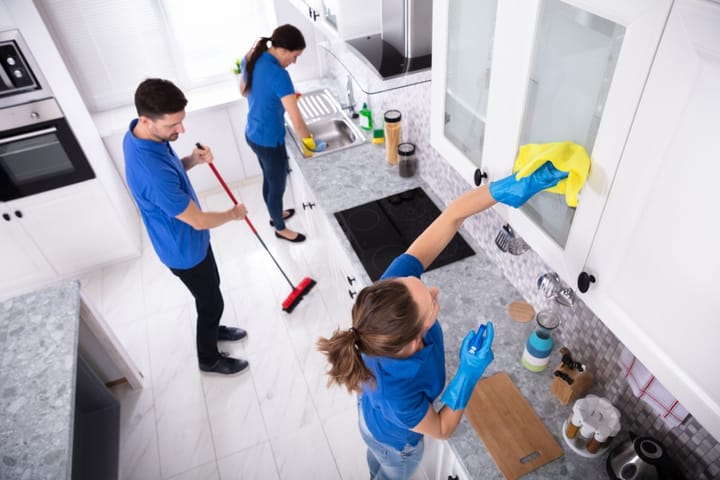Pest Control Solutions for Small Businesses on a Budget
Fight pests on a budget! Learn 10 practical & affordable solutions like DIY traps, employee training & partnering with local experts.

Small businesses often face unique challenges, and pest control is no exception. Maintaining a pest-free environment is crucial for employees' well-being, the business's reputation, and compliance with health and safety standards. This article will explore practical and budget-friendly pest control solutions tailored for small businesses.
Pest Control Solutions
1. Prioritize Prevention:
Proactive Prevention serves as the primary defense against pests. Utilize https://www.commercial-pestcontrol.com/ to seal entry points, including cracks and gaps in windows and doors, preventing pests from infiltrating your premises. Consistently inspect the exterior of your building for vulnerabilities and promptly address any issues. This straightforward yet impactful approach can substantially diminish the risk of infestations, ensuring a pest-free environment for your business.
2. Good Housekeeping Practices:
Maintain a clean and clutter-free workspace. Pests thrive in environments with access to food crumbs, spills, and hidden areas to nest. Implement a stringent cleaning routine, ensuring that communal areas, kitchens, and storage spaces are regularly sanitized. Dispose of waste promptly and efficiently to eliminate potential attractants for pests.
3. Employee Training:
Educate your employees about the importance of maintaining a pest-free workplace. Please encourage them to promptly report any signs of pest activity, such as droppings or sightings. Establish clear protocols for food storage and waste disposal. A well-informed and vigilant staff can be instrumental in preventing and addressing pest issues before they escalate.
4. DIY Pest Control Measures:
Explore cost-effective do-it-yourself (DIY) pest control options. This can include using natural repellents like vinegar, citrus peels, or essential oils to deter pests. Additionally, consider investing in traps or baits for specific pests that may be common in your area. DIY methods can be a budget-friendly supplement to professional services.
5. Regular Inspections:
Conduct regular inspections of your premises to catch potential pest issues early on. Identify and address any signs of pest activity promptly. Early intervention is critical to preventing infestations from spreading and becoming more challenging to control.
6. Collaborate with Local Pest Control Services:
Build partnerships with local pest control services that understand small businesses' unique challenges. Many pest control companies offer affordable packages tailored for small enterprises. Regular inspections and targeted treatments can be cost-effective in the long run, preventing more extensive problems that may incur more significant expenses.
7. Integrated Pest Management (IPM):
Implement an Integrated Pest Management (IPM) program. This strategic approach combines preventive measures, regular inspections, and targeted interventions. IPM minimizes the reliance on chemical treatments, focusing on a holistic and sustainable pest control strategy.
8. Consider Seasonal Pest Patterns:
Be mindful of seasonal pest patterns in your region. Different pests may become more prevalent during specific times of the year. Adjust your pest control efforts accordingly, taking proactive measures to address potential issues before they arise.
9. Stay Informed on Regulations:
Be aware of local health and safety regulations related to pest control. Compliance with these standards is essential for your employees' well-being and your business's reputation. Failure to meet regulatory requirements can result in fines and damage to your brand.
10. Seek Professional Advice:
Engage with professionals in pest control in Gwinnett County GA, for tailored advice on cost-effective solutions suitable for your business. These experts can offer insights into potential risk areas, suggest preventive measures, and guide you on optimizing the most efficient use of your budget for pest control, ensuring a comprehensive and practical approach to safeguard your business premises.
Conclusion:
While small businesses may operate on tighter budgets, effective pest control is a non-negotiable aspect of maintaining a healthy and reputable workspace. By prioritizing Prevention, implementing good housekeeping practices, and exploring budget-friendly solutions, small businesses can create a pest-free environment that contributes to the overall success and well-being of the enterprise.




Comments ()